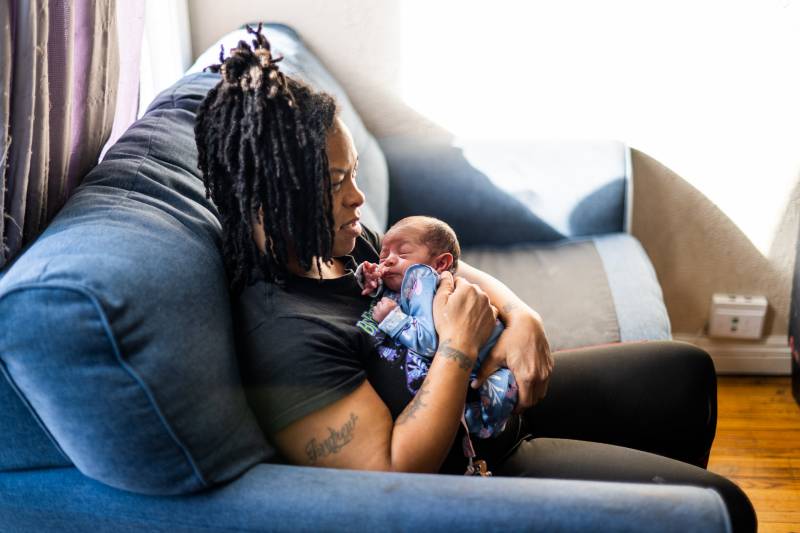“For so long, Black women have been excluded from the resources needed to have safe and healthy pregnancies. This funding will provide pregnant people with economic stability during this critical phase in their lives while allowing public health institutions to test a novel and promising public health intervention,” said Dr. Zea Malawa, director of Expecting Justice, which is overseeing the project with the San Francisco Department of Public Health.
The health impacts of the program are being studied by the University of California at San Francisco, Berkeley and Davis. In San Francisco, recipients are randomly selected after meeting eligibility requirements (they must be in their first or second trimester and have a household income of less than $100,000 per year). Participation in the study is voluntary.
Most participants have said the application process was easy and the program “felt more dignified,” because participants can choose how best to spend the money, said Michaela Taylor, project manager for Expecting Justice. She said some recipients use the extra cash to supplement their family leave, so they can stay home longer to recover from childbirth and bond with their baby.
“We want to make sure we’re replicating that as we expand, because that’s the whole thing about abundance, (which is) making sure folks feel celebrated and that they’re just getting a lot of resources,” Taylor said.
Expecting Justice is partnering with the Alameda County Public Health Department, the Richmond Rapid Response Fund, the Los Angeles County Department of Public Health, and the Riverside Community Health Foundation to serve their communities over the next two to three years beginning in mid-2023. Recipients will receive monthly stipends of $600 to $1,000 over 12 months, depending on which county they live in.

